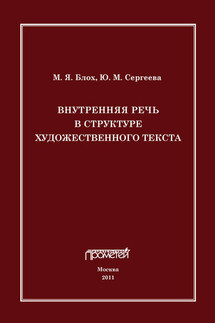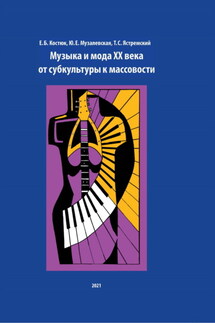Внутренняя речь в структуре художественного текста - страница 28
It was a chilly night; I covered my shoulders with a shawl, and then I proceeded to think again with all my might.
"What do I want? A new place, in a new house, amongst new faces, under new circumstances. I want this because it is of no use wanting anything better. How do people do to get a new place? They apply to friends, I suppose. I have no friends. There are many others who have no friends, who must look about for themselves and be their own helpers; and what is their resource?
I could not tell: nothing answered me. I then ordered my brain to find a response, and quickly. … as I lay down it came quietly and naturally to my mind: "Those who want situations advertise: you must advertise in the – shire Herald".
'How? I know nothing about advertising."
Replies rose smooth and prompt now…
"You must enclose the advertisement and the money to pay for it under a cover directed to the editor of the Herald. You must put it into the post at Lowton. Answer must be addressed to J. E. at the post office there. You can go and inquire if any are come, and act accordingly."
This scheme I went over twice, thrice; it was then digested in my mind: I had it in a clear, practical form: I felt satisfied and fell asleep [12, p. 118].
Речевые позиции, участвующие в этом внутреннем диалоге, не были антагонистами: общая цель заставляла их искать наиболее подходящее для всех сторон решение. Поэтому в итоге внутреннего диалога, который мы можем назвать диалогом-согласием, героиня обрела спокойное, умиротворенное состояние и смогла заснуть.
Но если мы рассмотрим еще один внутренний диалог того же персонажа, мы увидим, что речевые позиции, участвующие в нем, находятся в жестком конфликте друг с другом. О подобной ситуации говорят, что человек буквально «разрывается на части», будучи не в силах принять однозначного решения.
Some time in the afternoon I raised my head, and looking round and seeing the western sun gilding the sign of its decline on the wall, I asked, "What am I to do?"
But the answer my mind gave – "Leave Thornfield at once" – was so prompt, so dread, that I stopped my ears. I said I could not bear such words now. "That I am not Edward Rochester' s wife is the least part of my woe," I alleged; "that I have awakened out of most glorious dreams, and found them all void and vain, is a horror I could bear and master; but that I must leave him decidedly, instantly, entirely, is intolerable. I cannot do it".
But, then a voice within me averred that I could do it, and foretold that I should do it. I wrestled with my own resolution: I wanted to be weak that I might avoid the awful passage of further suffering I saw laid out for me; and Conscience, turned tyrant, held Passion by the throat, told her she had yet but dipped her dainty feet in the slough, and swore that with that arm of iron he would thrust her down to unsounded depths of agony.
"Let me be torn away, then!" I cried. "Let another help me!"
"No; you should tear yourself away, none shall help you: you shall yourself pluck out your right eye; yourself cut off your right hand: your heart shall be the victim, and you the priest to transfix it."
I rose up suddenly, terror-struck at the silence which so awful a voice filled [Ibid. 325].
Автор четко указывает в данном фрагменте текста, кому принадлежат голоса, звучащие в сознании героини. Сама же она ассоциирует себя исключительно с той речевой позицией, которая воплощает ее любовь к мистеру Рочестеру (Passion), и пытается противостоять голосу рассудка (Conscience), настаивающему на немедленной разлуке с любимым. Эта речевая позиция настолько чужда героине, что воспринимается ей как совершенно обособленный голос, который пугает ее как некое ужасное существо.






